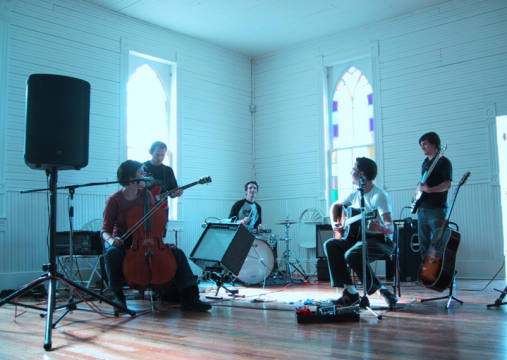Your personal music search space.
Augment your understanding of music.

YMUSIC SEARCH ENGINE
______________________________________________________________________________

MUSIC AND THE POWER OF HEALTHY SILENCE
Music is more than a casual leisure, an art or the new way to increase the benefits of a company. It is all of that and even more. The music industry is a rich ecosystem in which everyone and everything has a specific place. From the composer to the listener, from psychology to spirituality, from art to science, get insights on each field of music, learning about craft or history, about human behavior or consciousness. A place is also given to ethical questions.
MUSICAL CULTURE IN ITS VARIOUS ASPECTS


Do you want to perceive the inner movement of music? Try YMusic, your free personal assistant (it includes musical criteria to select music), and choose one piece of music!
What is the nature of musical experience?
Music to express personal feelings and thoughts
When it comes to music perception, it is first about pitch or music consonance, so its foundations are in acoustics. However, making music or listening to music is much more than being an issue of external perceptions. As an art, music differs from sculpture or drawing: for centuries, it never searched to reproduce elements found in the physical world, but it tried to express personal thoughts and feelings to the world. Also, when it comes to listening, sounds are not so much heard with the ear, which is only a medium to perceive sounds. Sounds are perceived by the whole human body, and real listening begins with reflection, with some path going from concepts to will.
Music may be a true aesthetic experience, working on the soul and exploring the realm of the self and connecting it to the Universe. More than other arts, music is created from mental images and it is an expression of the will. From that perspective, music is an expression of an invisible reality. And as well as the composer, the music listener may find in music a reflection of a specific spiritual home. However, not all music listeners are able to perceive the inner movements of music.
Also, an objective performance of music does not always correspond with our subjective perception of it. However, there are no sounds outside of listeners, who hear with their ears the basic materials offered by musical sounds and then analyse them in their mind, according to their gender, political opinions, class, racial experience and personal life.
Listening beyond judgment
Do we ever listen to someone without translating, transforming and twisting what we hear ? We hear people through the image that we have built about them. Through the lens of the irritation or, on the contrary, the joy, that comes into the relationship. Can a mind listen to a statement without any of these interferences? If so, what is important is the act of listening and that act of listening brings a miracle: the listener is completely free from all statements, whether they are true or false. Complete attention without interference of thought delivers the mind of the listener from all statements and the mind is free to act.
Sometimes, our minds may be so commercial that we do not do anything without being sure that we will receive something in exchange. Our minds live in the marketplace and we do not do anything without a reward, without a purpose. Everything must be an exchange and nothing is a gift. On the other hand, we want everything for free. To a certain extent, why not after all? Isn’t it nice that today, music is free for listeners most of the time? A higher number of people can enjoy it. But when it comes to music listening, there is an exchange: listeners give their attention, and then, music may convey its message.

Do you want to give an undivided attention to music during a moment? Try the YMusic search engine, your free personal assistant (it includes musical criteria to select music), and do nothing but listen!
Doing nothing but listening
Listening to music is like a journey: the listener may leave a house to visit a town and then a whole country, discovering more and more. As their musical knowledge grows, the ears become more and more aware of all benefits that music may bring. Nobody can become an expert in all styles of music, even professional musicians, but everyone can become better listeners, learning and experiencing more and more each day. Even if a lot of music is now available online, for most of listeners, music is just a soundtrack to their various activities. Very few are seeking to discern details in music, only hearing the most obvious elements of it. It can change. How? It is simple: by listening two or three songs a week, doing nothing but… listening.
Searching for other ways to listen to music
Most of the time, music listeners choose between a hedonistic and a judgmental approach. In the first case, they listen to music for pleasure only, enjoying sounds but not bothering to discern musical elements. The second option, being more cerebral, is more rigorous and analytical, but it may prevent the listener from experiencing music at the emotional level and sometimes it may include received opinion. Between judgmental and hedonistic music listening, is there a third way? Can people combine both to reach a higher quality of listening? Probably. Music listening makes people smarter. Some talk about ‘the Mozart effect’. Being pregnant, future mothers may want to listen to music composed by Mozart because it might enhance brain patterns. Music is said to have the power to influence cognitive functions. And, much more, a certain way to practice music listening can make listeners better humans. In some families, it may happen that people do not listen to each other, everyone modeling personal behavior on assumptions. In such families, the socialization model is somehow misguided. Also, they do not develop any type of music listening. In such families, even when the situation is mild in comparison to what happens in the street, music may emerge as a source of peace.
A composer wrote a testimonial saying that, having lived in a family where anger was the only emotion expressed towards him, he had started to play the piano not in order to be listened to, but as a way of eliminating any other sound in his environment. He was pressing the keys of his instruments with such force that he was breaking strings each year. And, when he went to a concert, he was fascinated to look to see people sitting calmly just listening to music, without talking. He wondered why and what the sounds were bringing to them. Numerous young rappers share similar experiences, explaining how sound and writing helped them to silence violence and hatred. They developed their listening skills in urban areas where listening is most of the time underdeveloped, compared to touch, smell, taste and sight. They examined listening from a variety of perspectives, in relationship to human speech. And whether one likes or dislikes hip hop and its language, one cannot but recognize that it is a source of change in the life of many individuals who give their attention to it.
Giving an undivided attention to music
Do you want to feel the intimacy of music? Try the YMusic search engine, your free personal assistant (it includes musical criteria to select music), and listen to sounds across various musical genres until you can represent them in your mind’s ear!
Music for all needs
Music is all around people; however, how important is it? Music creates common ground or increases national pride and it helps to enhance moods, but is it actually important? Is it something that people love like some wine that is good but that may be replaced by any other wine? Is it a cultural artifact or commodity that is enjoyed just for the fun it brings?
Apparently music is more than that. In numerous traditional societies, music had or has a profound influence on life, being part of rituals, preparing children for adulthood or marking time and space. And in contemporary societies, what would a wedding be without music? So music may fulfill different ways and needs of being human, serious and less serious ones, for different groups and individuals and in the life of a singular individual.
The intimacy of music
Music listening may be a very intimate act and not only in a private room. Friends who are at a concert with friends, lost in a crowd, may feel it is a very personal moment for themselves. And amongst musicians, some say that, without music, they could not survive. Music is part of their very intimacy, a part of what they are. A music listener wrote on a question-and-answer website that the music his friends like is, in his eyes, largely irrelevant, except for some rare occasions where they listen to music together. These words are significant. Another listener says the fact that music is used as social currency is in some ways an issue and that she never looks to her friends for music discovery. These examples show that even if a certain number of people listen to music socially, this is not acceptable to everyone.
For some people, in fact, music is part of their daily life and sometimes it may be a primary requirement, as it helps them to organize the chronology of their life. For professionals of course, it is a discipline: listening must be constant. Constant and personal. Composers listen to sounds until they can represent them in their mind’s ear. It can be a slow process. Also, they may force themselves to listen to music that they do not really like in order to find out how it is different from the music they love. Composers and performers listen to and try to understand as much music as possible, even what they do not enjoy. They see it as a necessary task to become better musicians. And they choose it across different music genres. In fact, these different genres express different ideas in various structures and so they do have something to teach.
Educated music listeners know what they love in their favorite music. For example, classical music lovers know how to follow tonal changes and discern modifications in rhythm and pitch. Rock music listeners are attentive to modifications in timbre and sound, so to sound color. And for any genre, all listeners have unique ways of listening, depending on different parameters (like life story, situation or musical knowledge).
Which importance does music have for an individual?

Do you want to have a moment with yourself and listen to music alone? Try the YMusic search engine, your free personal assistant (it includes musical criteria to select music), and determine what music is pleasant to your ears!
The advantages of listening to music alone
Is being alone healthy?
Most of the time, when people hear the word ‘alone’, they immediately associate it with sad realities: isolation, depression or even death. In contemporary societies, cemeteries are located outside towns. Remaining alone looks unhealthy. All daily life is about going out and meeting new people. Loneliness is often subject to negative coverage in the media, associated with mental disease.
It is certain that, when loneliness is not chosen, it can be a burden, whether its cause is a bereavment, a job loss or an overall inability to establish links with other people. Nevertheless, a lot of people complain that they never have a moment to themselves in their daily life. Isn’t it a paradox? Is dealing with personal free time an issue? Or making choices. In an age of data, that could be part of the problem. Lost in an ocean of music or movies that may be free or cheap is not a guarantee to enjoy any content, recommendation being based on general tags and critics being swayed by trends or opinion.
Being alone to enhance perceptions
What is perception? Perception is a state where people establish links between objects located in their environment: sounds, images, etc. When they are listening to music, their perception is oriented on an auditory scene in which they may detect differences and similarities between sounds, chords or melodies, trying to produce meanings and to store memories. Let us notice that the faculty of perception explains why popular music may be so palatable to so many people: relying strongly on timbre, it creates identifiable sounds, from song to song and from artist to artist. It is not pleasant because of any particular virtuosity, it is because of powerful sound patterns. Popular music listeners perceive modalities of various guitars sounds as distinctive for instance.
Finding pleasant music
By nature, sounds are pleasant or unpleasant, listeners experience them directly. Even a single chord may produce a delightful or a dreadful effect. What one will find likeable or not will be different from person to person, but the principle stays the same. And on that elementary level, musicians and nonmusicians do not differ.
That is the reason why many songwriters try to find powerful chords that create strong emotions in the listener’s mind, heart or body. They use specific musical intervals to make chords sound consonant. Consonant chords sound clear, smooth and pure, they please the ears. However, the way a chord is perceived depends on the listener and the harmonic context: the same chord may be dissonant in one song and consonant in another one. And that is part of the enjoyment for everyone, composers, performers and listeners, who all discover what they love.
The advantages of listening to music alone